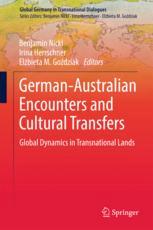

Most ebook files are in PDF format, so you can easily read them using various software such as Foxit Reader or directly on the Google Chrome browser.
Some ebook files are released by publishers in other formats such as .awz, .mobi, .epub, .fb2, etc. You may need to install specific software to read these formats on mobile/PC, such as Calibre.
Please read the tutorial at this link: https://ebookbell.com/faq
We offer FREE conversion to the popular formats you request; however, this may take some time. Therefore, right after payment, please email us, and we will try to provide the service as quickly as possible.
For some exceptional file formats or broken links (if any), please refrain from opening any disputes. Instead, email us first, and we will try to assist within a maximum of 6 hours.
EbookBell Team

4.0
36 reviewsThis book approaches Australo-German relations from comparative and interdisciplinary perspectives. It maps new pathways into the rich landscape of the Australo-German transnational encounter, which is characterized by dense and interwoven cultural, historical and political terrains. Surveying an astonishingly wide range of sites from literary translations to film festivals, Aboriginal art to education systems, the contributions offer a uniquely expansive dossier on the migrations of people, ideas, technologies, money and culture between the two countries.
The links between Australia and Germany are explored from a variety of new, interdisciplinary perspectives, and situated within key debates in literary and cultural studies, critical theory, politics, linguistics and transnational studies. The book gathers unique contributions that span the areas of migra
tion, aboriginality, popular culture, music, media and institutional structures to create a dynamic portrait of the exchanges between these two nations over time. Australo-German relations have emerged from intersecting histories of colonialism, migration, communication, tourism and socio-cultural representation into the dramatically changed twenty-first century, where traditional channels of connection between nations in the Western hemisphere have come undone, but new channels ensure cross-fertilization between newly constituted borders.